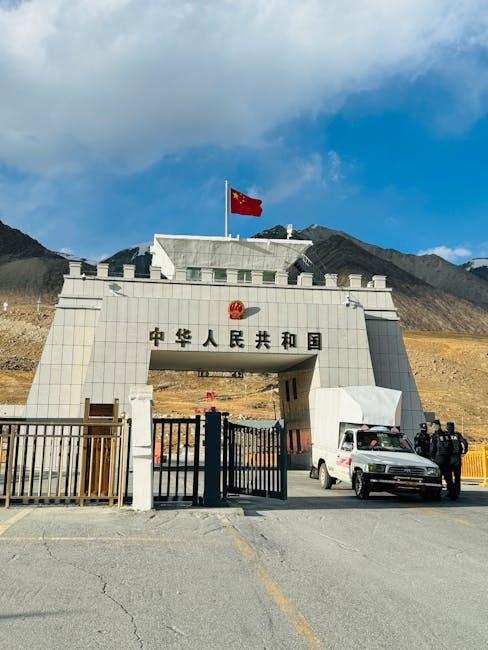Traveling opens the door to new experiences, cultures, and adventures, but it also comes with its own set of uncertainties. Whether you’re embarking on a relaxing beach vacation, an adventurous trek through the mountains, or a business trip across the globe, travel insurance is an essential safeguard that ensures peace of mind. Choosing the right travel insurance policy is not a one-size-fits-all task; it requires careful consideration of your destination’s unique risks and requirements. In this guide, we will walk you through the critical factors to consider when selecting travel insurance tailored to your specific destination, empowering you to make informed decisions that keep you protected and confident throughout your journey.
Understanding Destination-Specific Risks
When planning your trip, it’s essential to assess the unique challenges and risks associated with your chosen destination. Understanding these destination-specific risks is crucial for selecting the most appropriate travel insurance coverage. Consider the following factors:
- Health Concerns: If you’re traveling to areas with prevalent diseases or limited healthcare facilities, ensure your insurance covers medical emergencies and evacuations.
- Political Stability: For destinations with political unrest or frequent protests, look for policies that offer trip cancellation or interruption benefits.
- Natural Disasters: In regions prone to hurricanes, earthquakes, or floods, prioritize insurance that includes natural disaster coverage.
- Activities Planned: Adventure seekers should check for policies that cover activities like skiing, scuba diving, or hiking in remote areas.
By considering these factors, you can tailor your travel insurance to meet the specific demands of your destination, ensuring peace of mind as you explore the world.

Evaluating Coverage for Regional Health Concerns
When selecting travel insurance, it’s crucial to assess the potential health risks associated with your travel destination. Understanding regional health concerns allows you to tailor your coverage effectively, ensuring you are prepared for any situation that may arise. Start by researching common health issues prevalent in the area, such as tropical diseases, pollution levels, or local epidemics. These insights will guide you in identifying the specific coverage you need, such as vaccinations, access to specialized medical facilities, or emergency evacuation services.
- Tropical Regions: Consider coverage for diseases like malaria or dengue fever.
- Urban Areas: Focus on respiratory issues due to pollution or access to advanced medical care.
- Rural Locations: Ensure emergency evacuation options are included.
Moreover, verify if the local healthcare system is equipped to handle emergencies and whether your insurance plan covers treatments in private hospitals or clinics, which might offer higher standards of care. By evaluating these regional health aspects, you can confidently choose a travel insurance plan that not only meets your needs but also provides peace of mind throughout your journey.

Tailoring Policies for Adventure Activities
When it comes to adventure activities, standard travel insurance might not cut it. Tailoring your policy to include coverage for specific activities is crucial. Here’s how you can ensure your adventurous spirit doesn’t cost you extra:
- Identify Covered Activities: Check if your chosen insurance covers high-risk activities like skydiving, bungee jumping, or scuba diving. Many insurers offer specialized plans for such thrills.
- Evaluate Medical Coverage: Ensure that your policy includes robust medical coverage, as injuries during adventure sports can lead to significant expenses.
- Consider Evacuation Services: For remote adventure destinations, confirm that your policy includes emergency evacuation, which can be crucial if local medical facilities are inadequate.
- Review Exclusions: Understand the exclusions of your policy. Some might not cover activities conducted at altitudes above a certain level or in certain countries.
By paying attention to these details, you can embark on your adventure with peace of mind, knowing that you are well-protected against the unexpected.

Comparing Providers for Optimal International Support
When evaluating travel insurance providers, it’s essential to consider the level of international support they offer. A robust support system can be a lifeline when you’re in an unfamiliar environment. Here are some key factors to weigh when comparing providers:
- Global Reach: Ensure the provider has a wide network of hospitals and clinics in the regions you’re visiting. This can save you time and stress in emergencies.
- 24/7 Assistance: Look for providers offering round-the-clock customer service that can be accessed from anywhere in the world. This is crucial for dealing with unexpected situations in different time zones.
- Multilingual Support: Check if the provider offers assistance in multiple languages, which can be invaluable if you’re traveling to a country where you don’t speak the local language.
- Local Partnerships: Some insurers have partnerships with local companies, providing you with better rates and services.
By carefully analyzing these aspects, you can select a travel insurance provider that ensures comprehensive support, no matter where your travels take you.

